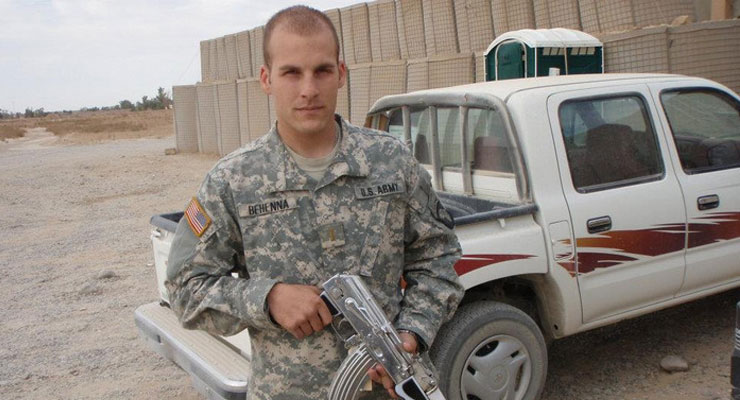
There is nothing easy here.
Background: The current president pardoned a former U.S. Army officer on 6 May 2019. The officer had been convicted of a war crime that occurred in 2008. The officer was accused of murdering a prisoner that was in his care. The officer had been ordered to release the prisoner back to his home. The officer claimed self-defense and acute stress disorder caused by the combat environment and the deaths of soldiers under his command.
An Iraqi interpreter and one of the officer’s own troops testified against him as a part of a plea deal. In 2009, the U.S. army officer was initially sentenced to 25 years in prison, after being found guilty of unpremeditated murder. Subsequently his sentence was twice reduced on appeal because of other findings in the case, and parole was granted in March 2014, after serving almost five years of the sentence.
My perspective is admittedly biased. I too was an officer serving in the U.S. Army, and I too served in Iraq. In 2004-2005, and again in 2010-2011.
I am faced with the psychological and emotional challenges that many who serve experience after we come home.
We ask service members to give up a piece of our humanity and tap into our inner savagery. Be ready to kill on a moment’s notice if necessary, and face uncertain death every moment of the day.
We the People also ask those of us who serve to keep it under control at all times. It is a challenge service members and officers face in combat, and despite the horrors of war, most, perform with restraint and admirably.
The exceptions are notable, and rightfully not hidden from public view.
This officer failed, but it is because of his service that he was even in a position to fail. Our country asked him to be there and to do his duty. He was tested in a way most are privileged and not required to experience, and he failed. He deserved to be punished, and to be an example to others not to make his choices.
Those of us who served, and have experienced extreme violence, can look at him with sympathy and empathy that others simply cannot.
He was convicted, he was punished. He served far more time than many ever do. He was held accountable for his actions.
The punishment sent a clear message that his actions were wrong and unacceptable.
He will never have this crime, or the time served erased. Even a presidential pardon cannot do that.
The pardon is not only for him, but for all service members, knowing that even if we deserve to be punished for our failings that the nation has our back.
I am not a supporter of this president, not one bit, and I think this pardon coming from him politicizes and taints the pardon of this soldier.
I still can support the pardon itself.
There are those that would only be satisfied if the officer had been executed for his crimes, to others, it was a forgivable act of war, and they may well believe he never should have been held accountable. My own views fall between those two extremes. There was justice here, perhaps not enough, but not none either.
Those who serve all need to know we need to do our duty and do it with justice and according to the oaths we swear when we take on these responsibilities.
We are all too human, with the frailties and failings of humanity, and we also need to know we can be forgiven and find redemption from what haunts us, whether we were punished officially, or do it to ourselves daily.
David Anderson says
Good points. The relative justice arguments are lost by the right’s turning this into a chest thumping team sport by our mendacious president. Right or wrong, subtle arguments of justice and ethics are are erased by the brainless chanting of moronic ditto heads.
David Anderson says
Thank you for your opinion – you speak from a unique perspective.
I see here a difference between what is just and what is SEEN to be just.
You have some compassion for the defendant – which we should have – and perhaps a quiet parole would better serve the interests of justice in this case.
The problem as I see it, is how others see it, and that is how our president has presented it. By even involving himself he has made it a battleground which serves nobody: the defendant, justice, those who look to us as a country of laws/rules/procedures vs those (his supporters) who view gvt as a transnational grift.
M D Mitchell says
Thanks for your thoughtful comments David.
Cheers,
Mitch (author of the piece)